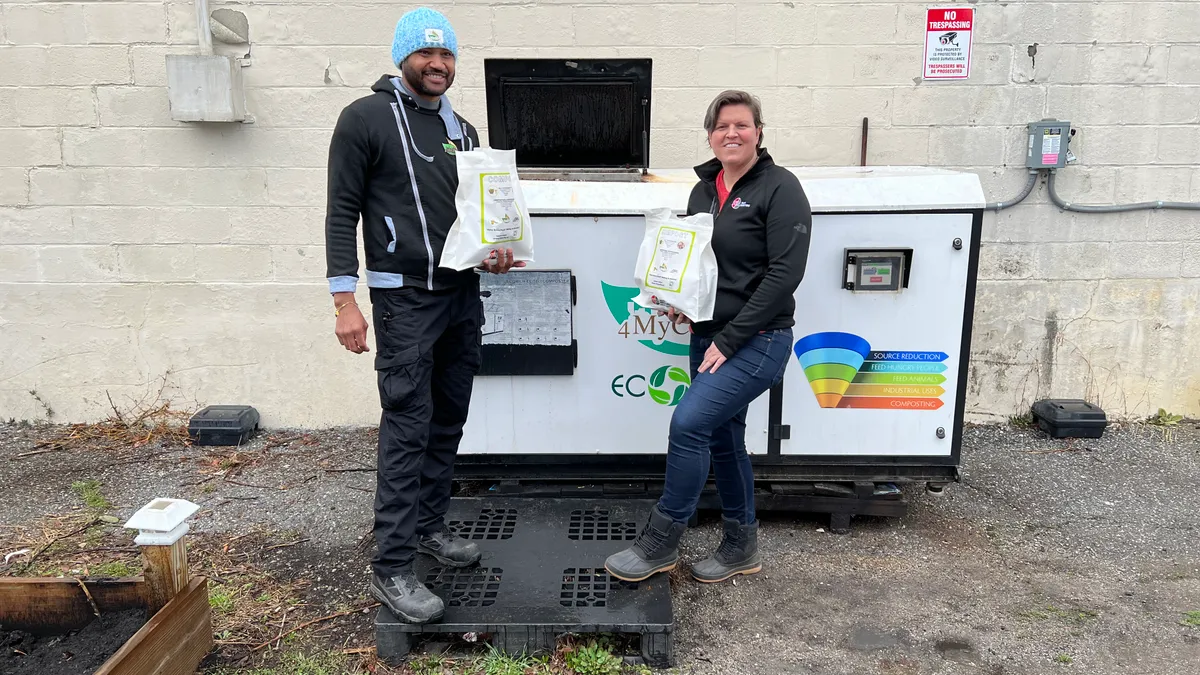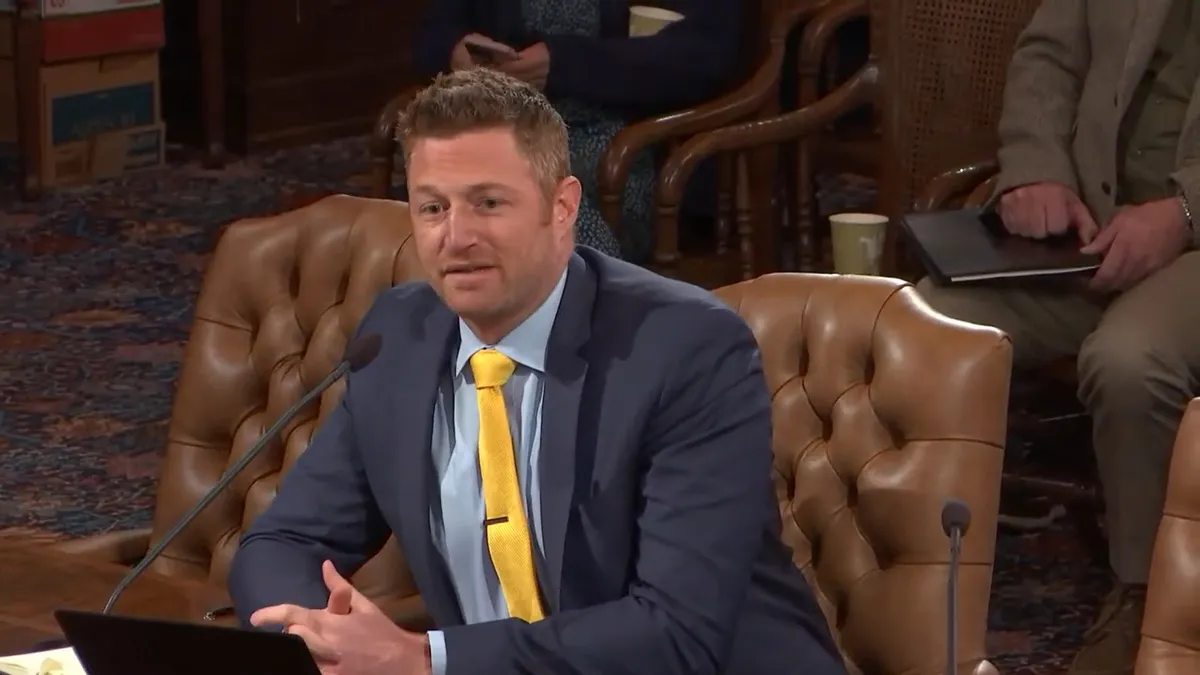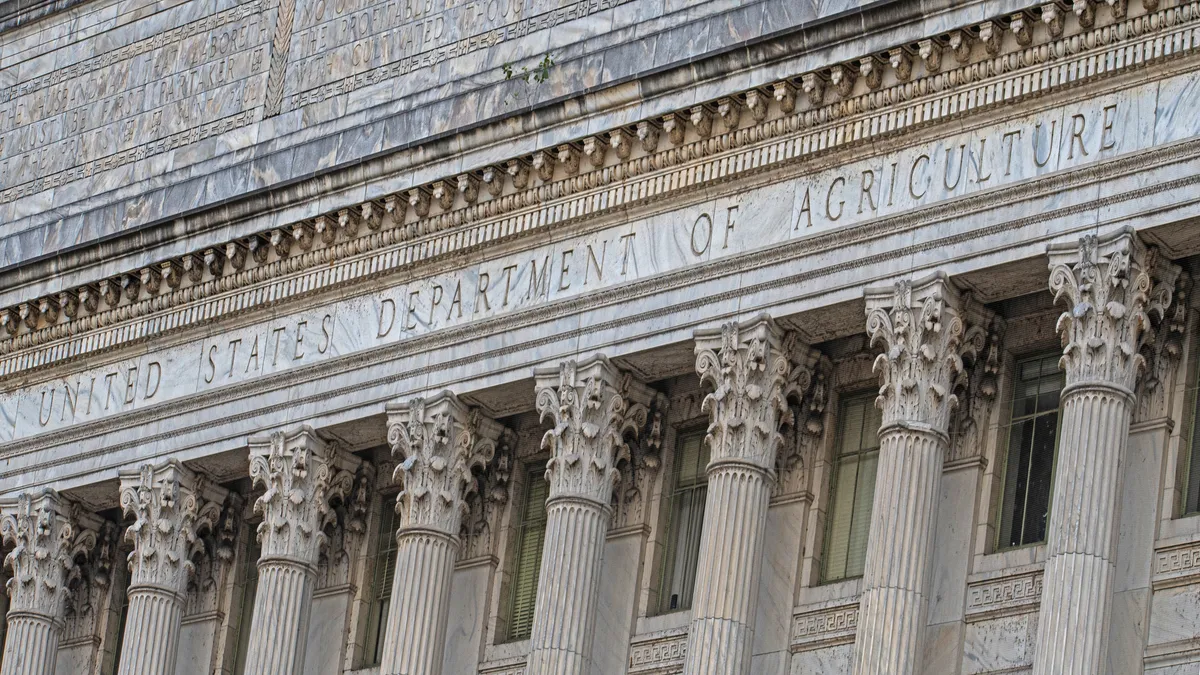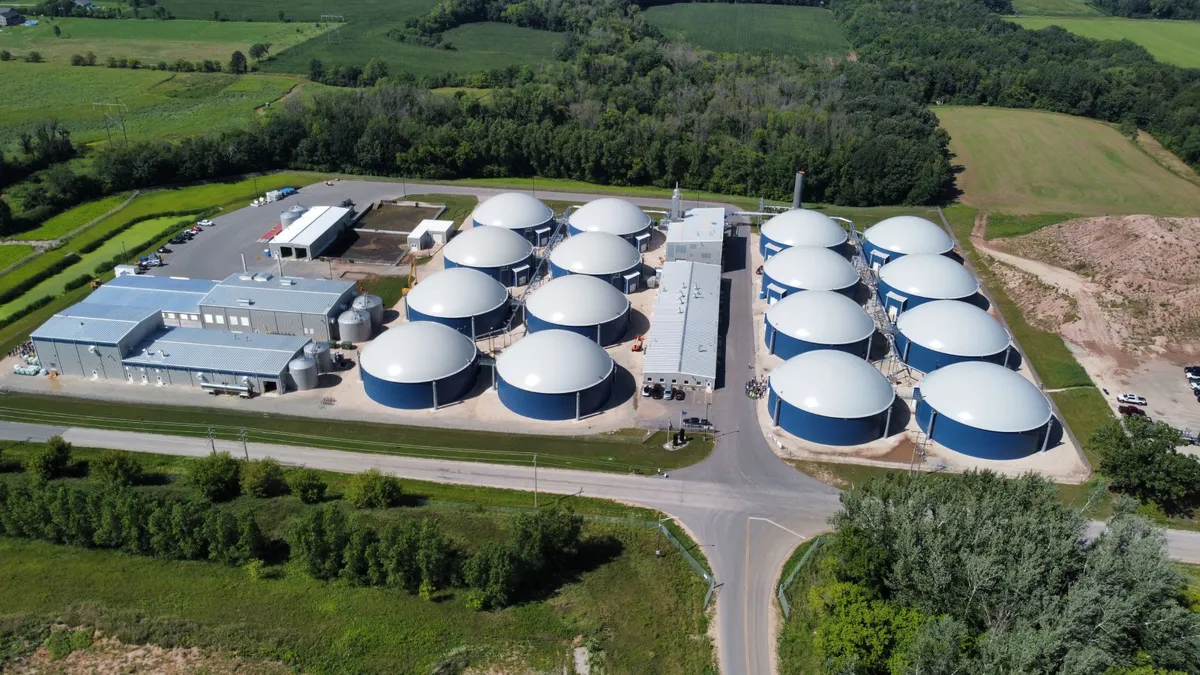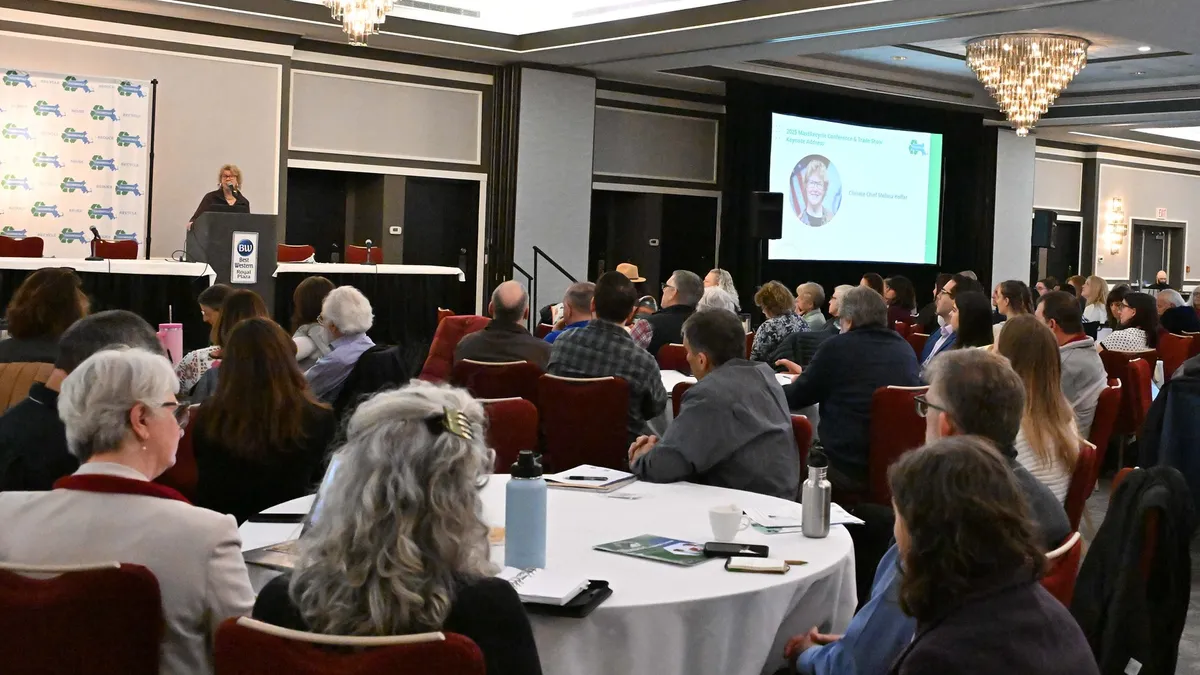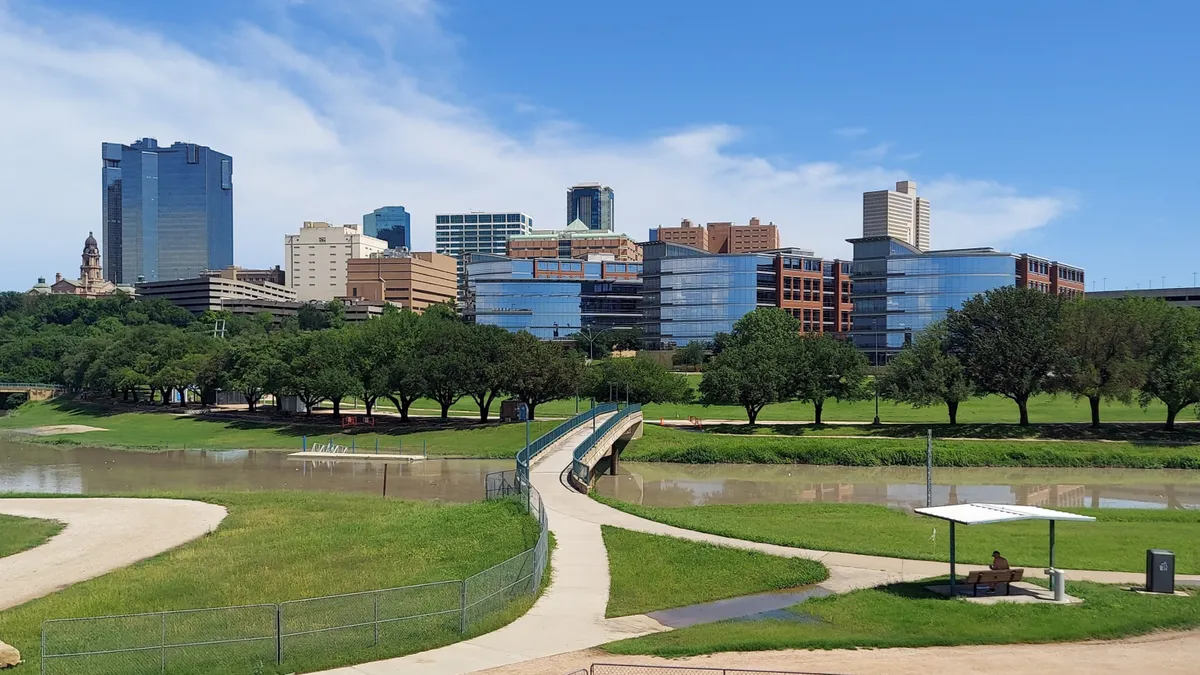WIN Waste Innovations is launching a local food waste pickup partnership for residents of underserved communities in Baltimore that it hopes can expand throughout the city.
The program, dubbed Compost on the Go!, is a partnership with nonprofit organics recycler 4MyCiTy in which DoorDash drivers will pick up food waste from roughly 100 participants using specially provided bags. The nonprofit is expecting to collect roughly 660,000 pounds of food waste from residents over a three- to six-month pilot period.
The food waste will then be processed through 4MyCiTy's local aerobic digester, which founder and CEO Christopher Dipnarine said has been used to generate 35 million pounds of a material he describes as compost or a soil amendment within a 24-hour turnaround since it came online in 2020.
According to the U.S. Composting Council, citing industry definitions, a product can be called compost when it undergoes necessary temperature levels for a longer time period. It maintains that is not the case in this type of system and views the pre-processed material from aerobic digesters as a feedstock for future composting.
According to 4MyCiTy, the nonprofit operation has not actively sought certification for the product of its machine because the material is being donated rather than sold. Dipnarine said his focus has been on scaling recycling solutions in an area with limited options and said he is confident that the material could meet certain specifications once it sits for a recommended 14-day period to limit acidity. He also noted there have been ongoing tests of the material and said he may pursue certification in the future.
Dipnarine said bags are being delivered this week, and collection should begin soon after. He said his nonprofit, which also works with restaurants through a food rescue operation and donates its material to community gardens and green spaces, is a sign of the power of grassroots waste solutions in the city.
"Everyone told me, including city leaders, that the program wouldn’t work. But here we are four years later, and we’ve composted more than any other operation," Dipnarine said.
Baltimore has been exploring a zero waste strategy since it passed a non-binding resolution to seek solutions in 2017. In 2018, the city also published a strategy to reduce commercial food waste by 50% and residential food waste by 80% by 2040.
The WIN and 4MyCiTy program comes as Baltimore struggles to consistently manage its waste pickup services. The city could be months to years away from restoring weekly recycling service, in part due to worker shortages, the Baltimore Banner reported.
The director of the Department of Public Works is also stepping down at the end of April, ending a tenure that prompted criticism for his handling of water infrastructure.
Meanwhile, WIN Waste has worked to improve its reputation in Baltimore after operating a facility that has handled more than 23 million tons of the city’s waste since 1985, according to the Northeast Maryland Waste Disposal Authority. The current version of the company was formed after Wheelabrator, itself owned by Macquarie Infrastructure Partners since 2019, acquired Tunnel Hill Partners in 2021.
The waste-to-energy plant in South Baltimore processes up to 2,250 tons of waste per day, according to a company webpage.
Given its role as a large site handling Baltimore’s waste, the facility has previously been noted as a lead industrial source of certain air pollutants within the city according to federal data. WIN’s standpoint is that these parameters don’t account for the full regional picture, including a coal plant outside of the city, and that the plant’s effects on overall air quality are limited. The company said emissions from its facility are “well below state and federal air standards.” A 2017 Environmental Integrity Project study, among others, cited vehicles as the leading source of overall air pollution in the area.
The facility’s operator has faced increasing pressure to improve emissions or shut down completely amid community concerns about potential health effects. In 2020, Wheelabrator received a 10-year extension on its contract to operate the incinerator for the city of Baltimore despite the objections of activists. As part of the extension, which expires in 2031, Wheelabrator agreed to invest nearly $40 million in emissions control upgrades, the Baltimore Sun reported.
Today, two of the plant’s three boilers have completed upgrades, said Mary Urban, director of communications, community engagement and marketing at WIN. She expects that following the upgrades, the facility will continue to play a role in the Baltimore area's waste strategy for years.
Urban said the company views organics recycling as part of its broader efforts to support a circular economy through a variety of waste management strategies. While it is initially fronting the cost for the 12- to 18-pound bags in its pilot partnership, WIN expects to fund additional efforts to enhance waste pickup in Baltimore going forward, per Urban.
"If you could recycle everything, if you could compost everything, which we’re nowhere near, we’ll still play a role," Urban said. "We’re there for what’s left."
Neil Seldman, co-founder of the Institute for Local Self-Reliance and the former director of its Waste to Wealth Initiative, said grassroots groups are “outpacing the city” when it comes to developing waste diversion programs.
He said WIN is following moves by other large waste firms to diversify their operations, likely in part due to community opposition to the incinerator. But motivations aside, the partnership of large organizations with smaller groups is likely a net benefit for the community, he said.
“They’re buying up capacity. That’s what big business does,” Seldman said. “I don’t applaud their incinerator, I and many others are trying to defeat it, but I can’t say I’m against their investments.”
Correction: This story has been updated to correct the amount of material 4MyCiTy processes and specify how its processes relate to industry composting standards. We also corrected the description of what federal data indicated about the WTE facility as a source of air pollution in Baltimore and added WIN Waste’s response to that description.



